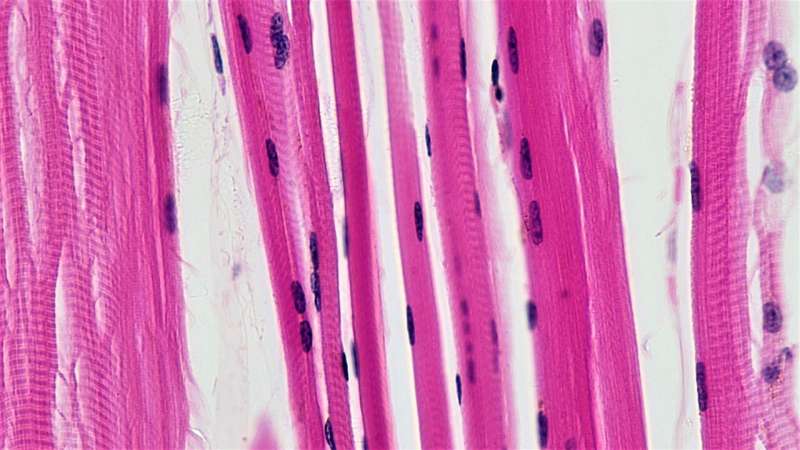This article has been reviewed according to Science X's editorial process and policies. Editors have highlighted the following attributes while ensuring the content's credibility:
fact-checked
trusted source
proofread
Lipid mediator Maresin 1 helps improve muscle regeneration, finds study

A team of researchers led by Carlos Aguilar, an associate professor of biomedical engineering at the University of Michigan, and graduate students Jesus Castor-Macias and Jacqueline Larouche, has sought to address how lipid mediators, which are potent regulators of the immune response after an injury, varied with volumetric muscle loss (VML) injuries that heal or result in fibrosis. Their work recently was published in an article in eLife.
The acute traumatic or surgical loss of skeletal muscle, known as VML, is a devastating type of injury that results in exacerbated and persistent inflammation followed by fibrosis. The mechanisms that mediate the magnitude and duration of the inflammatory response and ensuing fibrosis after VML remain understudied, and as such, the development of regenerative therapies has been limited.
"My lab has a long-standing research interest in this area of muscle trauma," said Aguilar. "Partly because this is a pervasive injury that happens more frequently than people think."
VML is responsible for over 90% of all muscle conditions that lead to long-term disability, and there are no therapies that have successfully translated into the clinic for this trauma.
"We tried to understand some of the cellular and molecular mechanisms that develop after this type of trauma occurs to generate and test new therapeutic modalities," said Aguilar.
When a muscle is impacted by VML, there is a dysregulated immune response that drives a stiff and dense fibrotic scarring that turns off the muscles' ability to heal themselves or regenerate.
"We were intrigued with this relatively new class of signaling molecules called lipid mediators, that have previously been shown to have potent effects on immune reactions. In particular, we focused on Maresin 1 because this lipid mediator has been found to attenuate the behavior of inflammatory cells like neutrophils and macrophages," said Aguilar. "When we delivered Maresin 1 after VML, we found that the amount of infiltrating neutrophils and macrophages and concomitant fibrosis went down. We also detected that muscle force went up when we treated VML with Maresin 1."
The long-term implications of the study point to the role of this class of signaling molecules as a potential therapeutic for severe muscle trauma.
"I think these results set the stage to explore immunomodulatory treatments to enhance muscle generation," Aguilar commented.
Aguilar acknowledged the work of graduate students Jesus Castor-Macias and Jacqueline Larouche. "They are two amazing students who really drove this research," he said. "I am so proud of them and how creative they were in using new mouse models and technologies to address these questions."
More information: Jesus A Castor-Macias et al, Maresin 1 repletion improves muscle regeneration after volumetric muscle loss, eLife (2023). DOI: 10.7554/eLife.86437




















